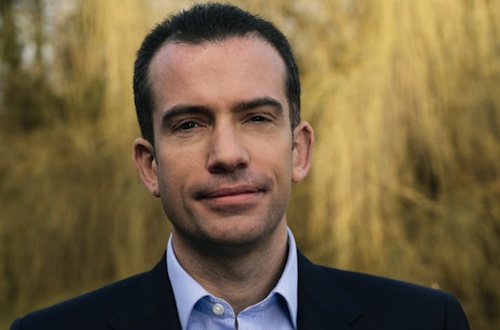UK-headquartered mobile telecommunications giant Vodafone is increasing its focus on multinationals operating in Africa by expanding its Global Enterprise division onto the continent.
Vodafone Global Enterprise CEO Nick Jeffery, pictured, says the aim is to provide a consistent service and product offering to large, multinational companies, including SA-based companies that operate across the African continent and worldwide.
It will work in partnership with its SA-based subsidiary Vodacom, in which it holds a 65% stake. The Global Enterprise partnership follows as a direct result of Vodafone’s recent acquisition of an additional 15% of Vodacom from Telkom.
Global Enterprise already operates in the US, Europe and parts of Asia. Vodafone and Vodacom operate mobile telecoms businesses in SA, Egypt, Ghana, Kenya (Safaricom), Tanzania, the Democratic Republic of Congo, Mozambique and Lesotho. Vodacom subsidiary Gateway Communications also has an extensive presence on the continent, providing services to corporate clients and telecoms service providers.
Jeffery says multinational companies are increasingly demanding consistency in the communications products they use across all the territories in which they operate.
“With a lot of large multinationals moving into Africa, they’re finding it difficult to manage their communications. Vodafone hopes to solve that.”
Jeffery says Vodafone Global Enterprise is enjoying strong growth in emerging markets. “We launched this business in India 18 months ago and it’s already a quarter of the business.”
Global Enterprise effectively creates a service layer that sits above the network infrastructure in each country. This layer provides customers with services such as uniform billing across territories, IT policy management and enforcement, and device management, among other things.
Vodafone is able to manage devices for its customers over the air. For example, it is able to determine which devices haven’t been used in the past 30 days (this helps companies know where they are wasting money) or it can lock or even wipe phones remotely. Stolen phones can be rendered completely unusable.
In territories like Nigeria where Vodafone doesn’t operate a network directly, it will work with local mobile operators so that multinationals only ever have to deal with Vodafone for billing and service.
Jeffery says Vodafone can also help multinationals manage their bills to ensure they don’t get shock accounts as a result of employees roaming on their cellphones or who downloading large amounts of data while travelling.
Some customers, he says, have opted for unmetered options. “So, they receive just one invoice a year, and they can communicate as much as they want,” Jeffery says.
Vodafone Global Enterprise has 600 multinational customers worldwide. The biggest of these has outsourced management of its mobile communications in 76 countries. About 60% of its customers are based in Europe, about a quarter are from the US, and the rest come mainly from Asia.
Another area of focus for Global Enterprise is machine-to-machine communication — including smart metering, connected cars and the remote monitoring of equipment.
“We use non-geographical Sim cards, so if you’re a smart metering company, you can build connectivity into your plant and equipment and ship it anywhere in the world, activate it, and control it remotely,” Jeffery says. “This is an area of strong growth for us.” — Duncan McLeod, TechCentral





